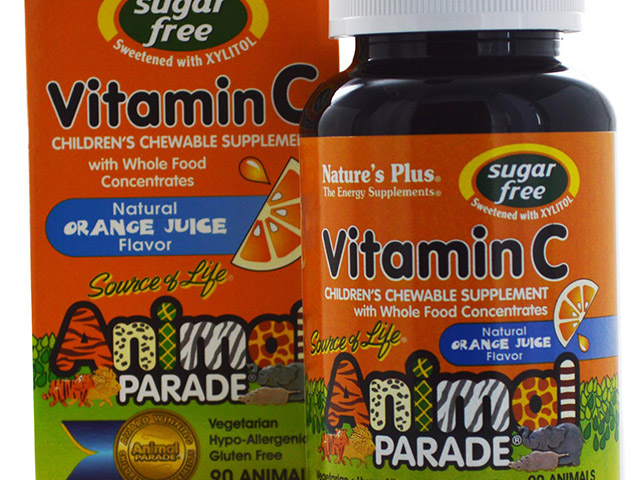For humans, a source of vitamin C in the diet is literally necessary for survival. Early sailors deprived of fresh foods for extended lengths of time often suffered from “scurvy,” a nasty affliction characterized by bleeding gums, loss of teeth, a weakened condition, and sometimes death. It wasn’t until the late eighteenth century that Captain James Cook, the first European to visit the Hawaiian Islands, taught the British Admiralty how to prevent scurvy by adding fresh fruit or lime juice to its sailors’ daily ration of rum (thus earning them the nickname of “Limeys” that endures to this day).
In the early 1900s, ascorbic acid was isolated and identified as the nutrient that prevented scurvy. Humans, it was discovered, are among the few animals that cannot manufacture vitamin C in their own bodies, and must obtain it from an outside source (fresh fruits, vegetables, or vitamin C pills) on a regular basis in order to avoid illness.
Dogs, however, can produce vitamin C in their bodies, and because of this ability, nutritionists have long considered it unnecessary to add C to a dog’s diet. Until recently, few dog food makers added vitamin C to their products – or if they do, it was for the preservative action of the vitamin, rather than its nutritive value.
Vitamin C benefits the sick and the stressed
This may be appropriate when dealing with healthy unstressed animals, but recent clinical observations indicate that when dogs are sick or stressed, they can rapidly deplete their bodies’ output of vitamin C. A 1942 study noted that dogs with skin diseases usually have very low amounts of vitamin C in their blood.
Other researchers have found the blood levels of vitamin C to be low – and even non-existent – in dogs with fevers and dogs who have exercised to their limits (sled dogs after a race, for example, or hunting dogs in the middle of hunting season).
Stress is the best-known cause of vitamin C depletion in dogs. Physical stress comes in many forms: gestation, lactation, growth, hard work (dogs used for herding, hunting, tracking, etc.), vaccinations, injuries, tail-docking or ear cropping, or illness. Emotional stress, whether caused by relocation, weaning, or demanding training, can also deplete this reserve. In fact, researchers can measure the level of stress a dog experiences by measuring the degree of depletion of the vitamin in the dog’s blood.
Conversely, many studies have found that dogs (as well as humans) that are supplemented with vitamin C show greater resistance to disease, and a better ability to recover from injuries or illness.
What C does for dogs
Wendell O. Belfield, DVM, is perhaps the world’s best-known and most ardent advocate of vitamin C supplementation for dogs. In his book, “How to Have a Healthier Dog,” Belfield describes how he first came to experiment with (and appreciate) the power of vitamin C in his veterinary practice.
Following a particularly heartbreaking episode, where he was unable to save the life of a beloved family dog that had distemper, he began researching viral diseases. In the course of his studies, he came across an article about a doctor who used massive doses of vitamin C to successfully treat viral diseases such as polio and hepatitis in the 1940s. Belfield began wondering whether C could be used to combat canine viral diseases.
One day in 1965, another client came to Belfield’s office with a dog that was suffering from distemper. Belfield decided to try an injection of vitamin C on the dog, and it responded dramatically, surviving what he had been taught in veterinary school was a fatal disease for which there is no successful treatments.
Following this success, Belfield began experimenting with vitamin C treatments for all kinds of conditions in dogs. His trials and studies have convinced him of the tremendous power that the vitamin holds for dogs.
According to the “Encylcopedia of Nutritional Supplements,” by Michael T. Murray (1996, Prima Publishing), vitamin C improves immune function by enhancing white blood cell function and activity. It also increases the blood levels of interferon (the body’s natural antiviral and anticancer compound) and antibodies (proteins that bind to and destroy foreign material such as bacteria, viruses, and toxins).
Vitamin C is commercially available by itself or combined with other nutrients in a number of forms. See “Which Form of Vitamin C is the Best?” on page 8 for information about your options.
Suggested uses
Time and further studies are bearing out Belfield’s findings. Today, vitamin C is routinely prescribed by holistic veterinarians for a number of illnesses, including cancer, kennel cough and other respiratory infections, abscesses, and other bacterial infections. Due to its important role in maintaining the health of collagen, it appears to be especially helpful for slowing – and some say, reversing – degenerative joint disease, hip dysplasia, and spinal disorders.
Dosage
The average dog normally produces about 18 milligrams of vitamin C per pound of body weight per day. Therefore, for a dog that is free of clinically significant symptoms but is experiencing unusual stress, supplementation with about that much C per day appears be a conservative maintenance dosage. (About 500 milligrams for a 28-lb. dog daily.) To increase absorption, veterinarians recommend splitting the total daily dosage into several feedings during the day.
However, many holistic veterinarians routinely suggest maintenance doses that are three to four times that amount. They explain that modern, domestic dogs need more vitamin C than the theoretical “natural” dog, since their bodies must deal with so many challenges: stress, pollution, chemicals and pesticides, and poor diets, to name a few.
Too much vitamin C, especially if given in one dose, will cause diarrhea in dogs. What amount is too much varies from dog to dog, so, when administering the maximum amount of C for a therapeutic (not just maintenance) dose, many veterinarians will suggest that you increase the dose in 100-500 milligram-per-day increments until the dog develops diarrhea, then reduce his daily dose to the previous day’s dose. (This is often referred to as dosing to “bowel tolerance.”)
Individuals dogs may be more or less tolerant of vitamin C supplements, and their tolerance may change with environmental conditions. For instance, a dog that is experiencing great stress may tolerate 4,000 milligrams without diarrhea, but develop the condition as the stress is removed. The owner’s awareness of the quality of the dog’s stool is critical to appropriate dosing.
The type of illness being treated should also be considered when determining the dose. Some guidelines published by holistic veterinarians include:
Richard Pitcairn, DVM, “Dr. Pitcairn’s Complete Guide to Natural Health for Dogs and Cats.” Pitcairn suggests giving 100-500 milligrams (based on the dog’s size) of vitamin C daily to dogs that are exposed to unusually high amounts of pollutants.
Cheryl Schwartz, DVM, “Four Paws, Five Directions: A Guide to Chinese Medicine for Cats and dogs.” Schwartz suggests giving vitamin C to dogs with a variety of illnesses, including upper respiratory conditions (small dogs, 125 to 500 mg. twice daily; medium dogs, 250-1,500 mg. twice daily; large dogs, 500-1,500 mg. twice daily), arthritis (to bowel tolerance), infected ears (small dogs, 250-500 mg. twice daily; large dogs, 500-1,000 mg. twice daily), and skin allergies (small dogs, 125 mg. twice daily; medium and large dogs, up to 750 mg. twice daily).
It’s important to remember that a healthy, happy dog with a quality diet and little stress probably has no need of supplementation with vitamin C. However, if stress, illness, or age causes a dog’s need for vitamin C to outstrip his ability to produce it, supplementing him with C is a sensible choice.
Source
Bob Griswold lives near Santa Rosa, California, and is a biochemist with experience in formulating animal feeds, fertilizers, human foods, and cosmetics.











